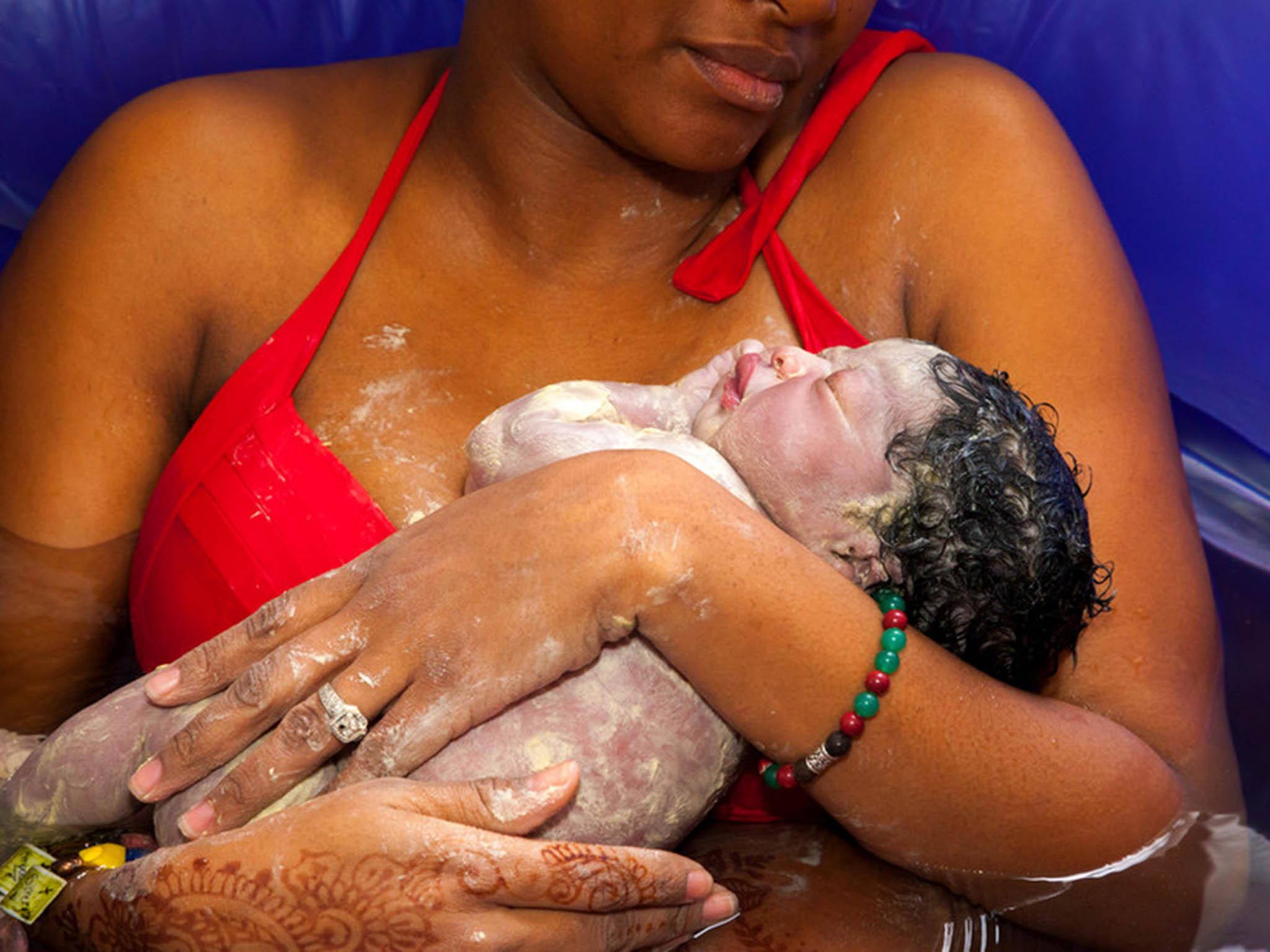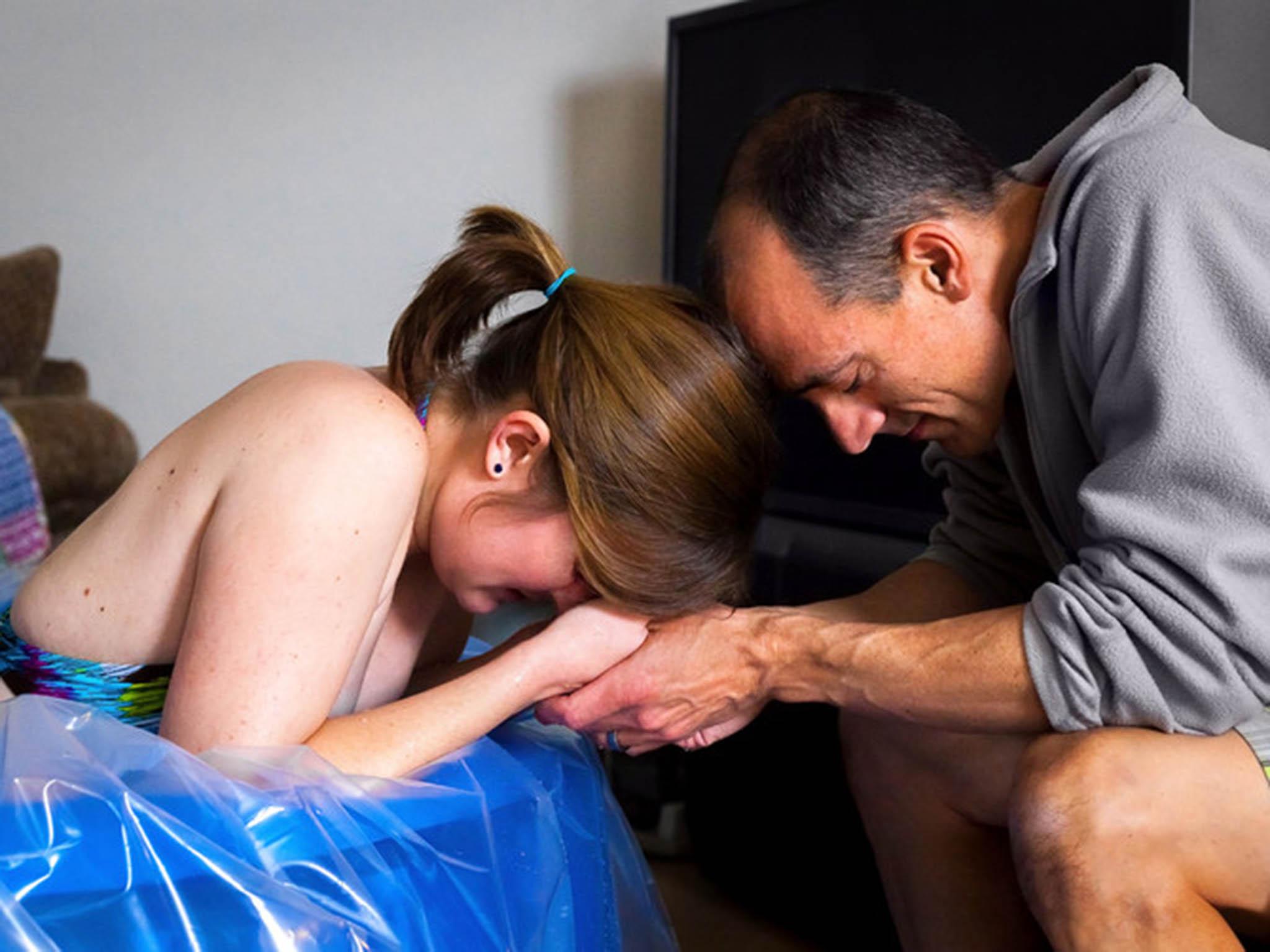Rise in ‘freebirthing’ suggests pregnant women no longer trust medical experts
Women who have previously suffered a traumatic or difficult birth are more likely to try freebirthing, which is absent of doctors and midwives. Claire Feeley explores the pros and cons of the phenonemon

Your support helps us to tell the story
From reproductive rights to climate change to Big Tech, The Independent is on the ground when the story is developing. Whether it's investigating the financials of Elon Musk's pro-Trump PAC or producing our latest documentary, 'The A Word', which shines a light on the American women fighting for reproductive rights, we know how important it is to parse out the facts from the messaging.
At such a critical moment in US history, we need reporters on the ground. Your donation allows us to keep sending journalists to speak to both sides of the story.
The Independent is trusted by Americans across the entire political spectrum. And unlike many other quality news outlets, we choose not to lock Americans out of our reporting and analysis with paywalls. We believe quality journalism should be available to everyone, paid for by those who can afford it.
Your support makes all the difference.Freebirthing, where women choose to give birth without medical assistance from midwives or doctors, is mired in controversy. Healthcare workers harbour deep concerns for the health of mother and baby. But its growing popularity suggests that when it comes to childbirth there is a widening gap between what women want and what they are offered.
Maternity professionals recognise that sometimes events occur during labour that require timely intervention to ensure the safety of mother and baby. On the other hand, ethically and legally a woman’s right to autonomy regarding her own body includes the right to decline medical advice or treatment should she wish it, whether or not that runs counter to the recommendations of midwives or doctors. In Britain, this is at the heart of respectful maternity care and is enshrined in law.
There is now a growing body of research from Sweden, Holland, Australia, Canada, the US and UK that explores the freebirthing phenomenon, including the mother’s motivations for choosing this way and their subsequent experiences. Despite the countries’ differing approach to offering maternity care and homebirthing services, it’s interesting to find the studies reveal recurring themes.
Why would you?
The most obvious recurring theme drawn from mothers’ comments to researchers is that they chose freebirthing as a way of resisting the biomedical model of birth. Both midwifery and obstetric care were rejected as for many, they were synonymous, reflecting wider criticisms of maternity services. This decision stemmed primarily from their own risk assessment, of where the harms of excessive interventions often carried out in hospitals were deemed riskier than carrying out a freebirth.

Where homebirth services were available, some women did not want the routine care that is provided by midwives. This was largely due to the belief that routine care practices would cause interference that would get in the way of their ability to birth safely. Additionally, they were concerned that they may face coercion should they decline aspects of care provided by the midwives, therefore they did not want care imposed upon them during childbirth. The researchers’ findings across all studies agreed that women sought to retain full control and autonomy throughout their experience of giving birth, a need they felt maternity services were unable to meet.
It must be recognised that many of the women who chose to freebirth had previously had negative or even traumatic experiences of maternity care – these experiences had led to their decision to do things differently. This shows a great loss of trust and faith in healthcare services, and these women embody the link between disrespectful care and the experience of traumatic childbirth. The same rationale is also found in women who following a traumatic childbirth who request an elective caesarean, or even forgo future pregnancies and children.
On the other hand, other women were keen to point out that their decision to freebirth stemmed not from a negative perception of maternity care, but from a positive perception of the natural, physiological and instinctual processes of giving birth in which they placed their trust, making the need for maternity care redundant.
The decisions made at both ends of this spectrum challenge the basis on which our current healthcare provision around childbirth is offered.
The challenges midwives face
In the UK, NHS maternity policies strongly recommend an approach of individual care that offers equitable access to midwife-led homebirth services or birth centres as well as doctor-led hospital birth. However, two studies from the UK that explored freebirthing reveal that this may not always happen in practice.
One study revealed a “pervading mood of fear” created by midwives, where mothers experienced midwives’ risk-averse approach to maternity care as manipulative in order to encourage conformity to guidelines, regardless of the mothers’ wishes. This suggested that their midwives prioritised the institutional requirements over the needs as expressed by the mothers-to-be. Consequently, this led women to avoid maternity care altogether.
A second study found that some women found access to homebirth services obstructed, leading them to choose to freebirth. Some women even faced opposition from maternity providers to their decision to freebirth, leading in some cases to negative and distressing repercussions including referrals to social services. It’s important to note that this occurred despite the legislation in the UK that assures a woman’s right to bodily autonomy.
The women in both studies recognised that British midwives currently work in a technocratic, litigious, and deeply risk averse environment, and that this inevitably shapes how midwives approach their role. But evidently this runs contrary to the rhetoric of “individualised” woman-centric care that is supposed to underpin maternity care.
Overall, these illuminating studies reveal a resistance to the dominant medical approach to childbirth that is not meeting some women’s needs. Criticism of an overly medical approach is not unique to discussions of freebirthing: a study published in The Lancet indicated that the overuse of maternity interventions is associated with increased psychological and physical harms.
Of course there are occasions when timely medical interventions can be the difference between life and death, but what these studies highlight are the lengths some women will go to avoid what they feel as intrusive, over-medicalisation of giving birth.
For some women, the decision to freebirth stems from a philosophical belief that an unassisted birth is safer, and is their right to carry out. For others it reveals a “broken system” that is failing them, and points to the need for a collective response to find a fix.
This article originally appeared on The Conversation (theconversation.com). Claire Feeley is a Midwife and PhD Researcher, at the University of Central Lancashire
Join our commenting forum
Join thought-provoking conversations, follow other Independent readers and see their replies
Comments